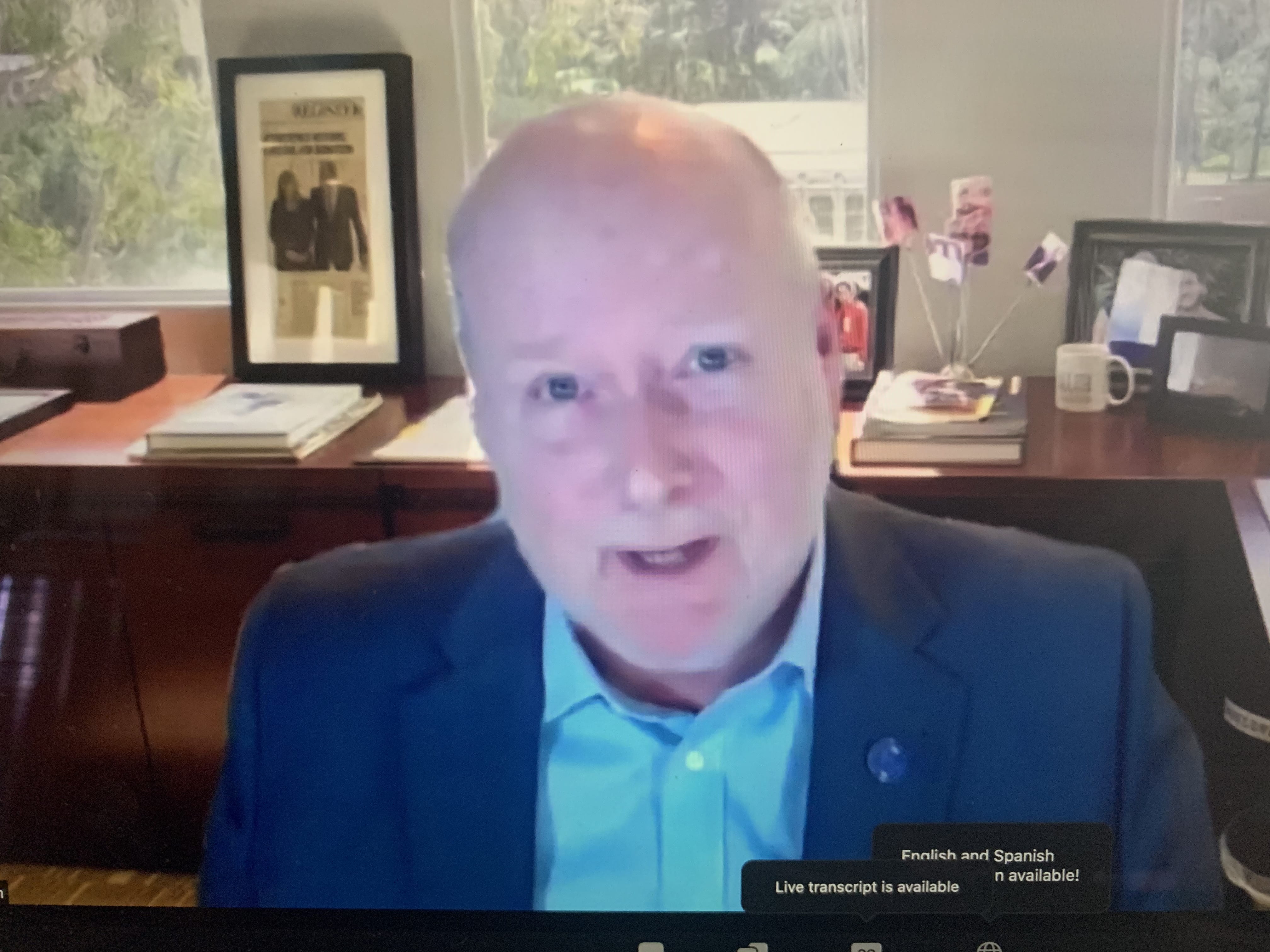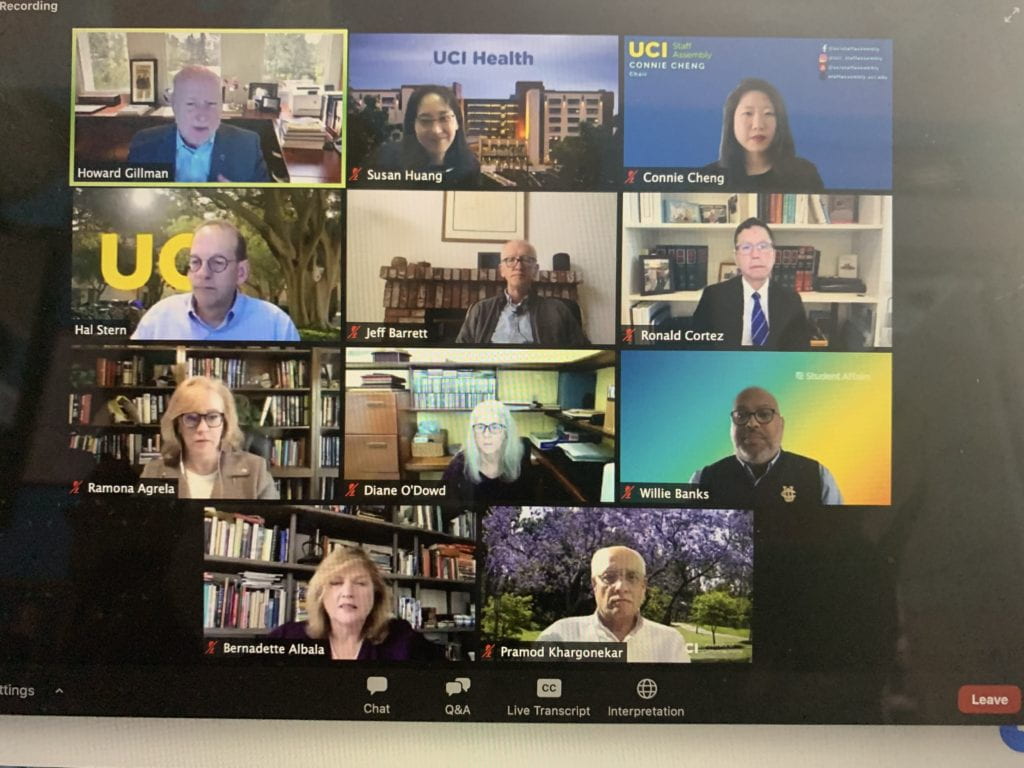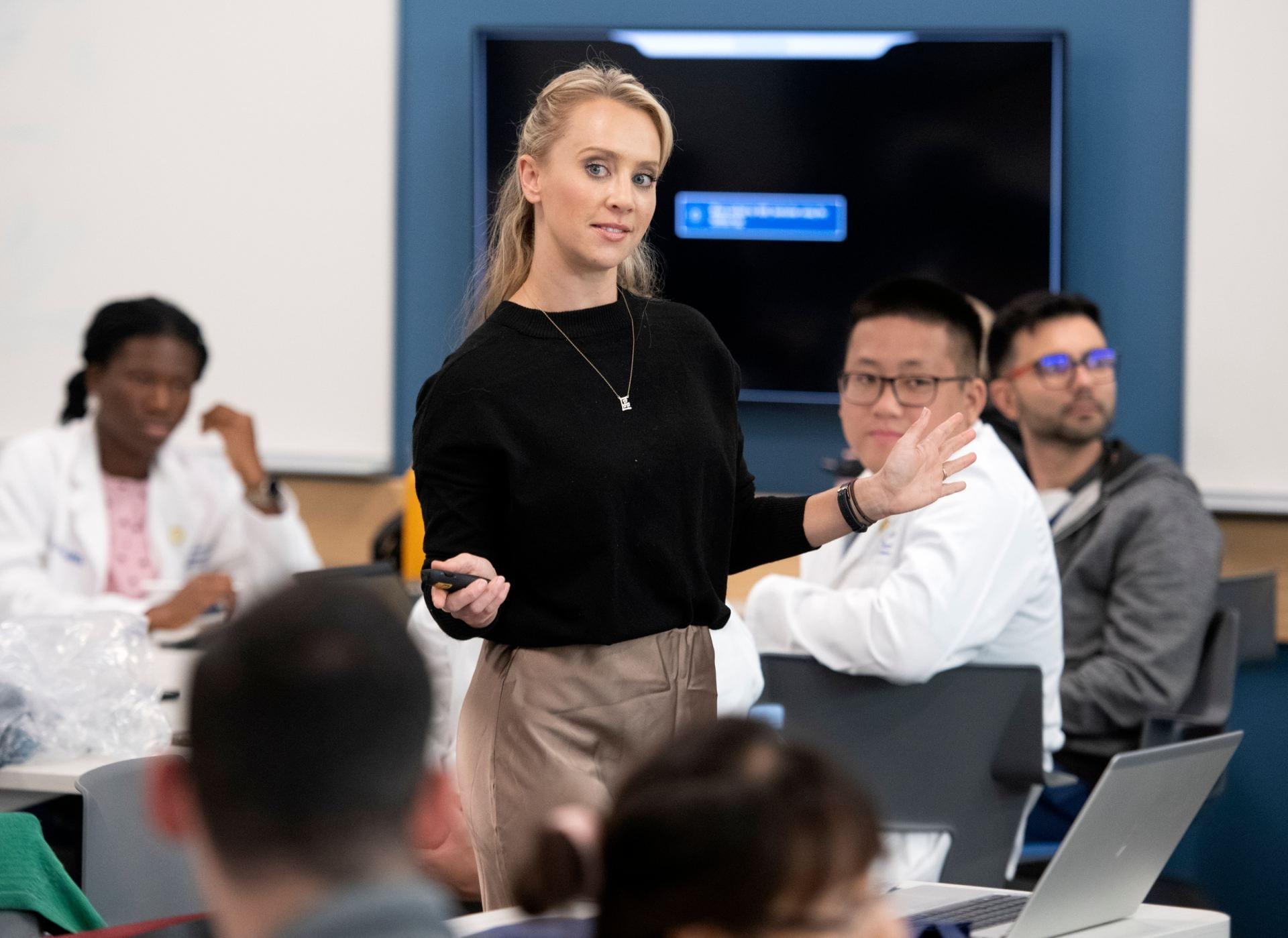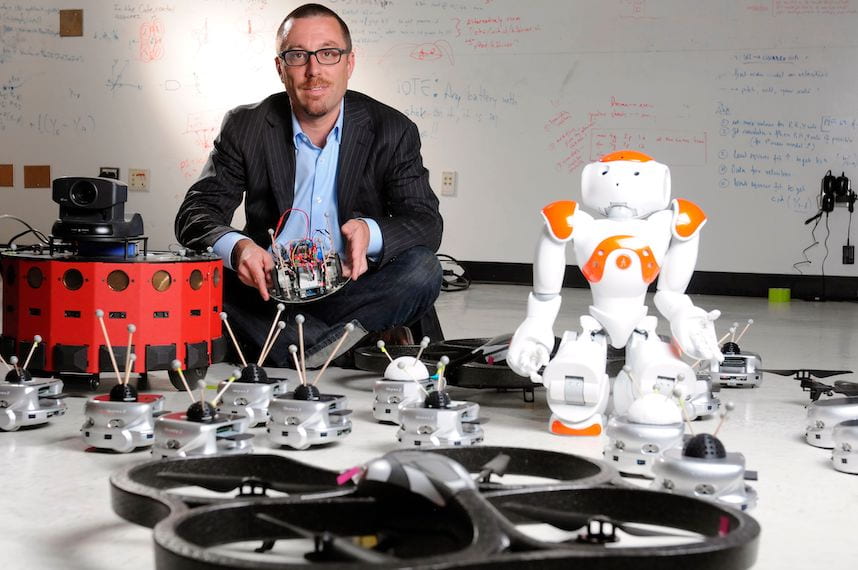UCI town hall addresses fall planning and vaccines
Campus leaders host a virtual event sharing insights into the next academic year

Addressing a live viewership of more than 2,300, Chancellor Howard Gillman on Thursday hosted the first UCI town hall of 2021. Ten other campus leaders also participated, with most of the 90-minute virtual event spent taking 50-plus questions from the audience. The topics on everyone’s minds fell into four main categories: remote work, COVID-19 vaccines, academics and finances.

Remote work extended
While it was announced that remote work is being extended through June 30, many questions focused on the possibility of continuing to work remotely when the campus returns to in-person operations.
“When we come back, it will not be the same work environment as a year ago,” said Ramona Agrela, associate chancellor and chief human resources executive. “We are cautious about reentering the workforce and sensitive to employees who have been successful working from home, as well as those who have not.”
University of California guidelines are being developed to address a hybrid model, in which employees work some days in the office and some days at home, viewers were told. The guidelines are expected in a few months.
Vaccine overview
Dr. Susan Huang, director of epidemiology and infection prevention, provided an educational overview of the COVID-19 vaccine and encouraged every adult to get vaccinated, including those who have had COVID-19, suggesting that this could help curb the emergence of new virus variants. While there is more demand than vaccine at the moment, Huang anticipates that by mid-April, there will be enough for anyone who wants it.
UCI Health has a vaccine FAQ in both English and Spanish on its website to address commonly asked questions about side effects, taking other medications and more, she noted. Masking and additional public health guidance should continue until 75 to 80 percent of the population has been vaccinated.
“The SARS-CoV-2 virus is clearly seasonal,” Huang said. “It’s expected that, in the future, there will be an annual vaccine for COVID-19 like there is for the flu.”
UCI developed its own vaccination site at the Bren Events Center to complement Orange County plans. Currently, Gillman said, the campus operation is restricted by two things: available doses and eligibility as defined by the state and county. The next on-campus employees to be vaccinated will be first responders and food service, child care and agricultural workers, he said.
While vaccination is not required, Gillman expressed his support for making the vaccine available to the entire campus community, while following the state and county guidance. Employees who become eligible for vaccination will receive an email inviting them to participate, Agrela said, adding that students will be notified by the Student Health Center when they’re eligible.
However, everyone at the town hall emphasized that if a vaccine becomes available through a healthcare provider, pharmacy or other source, individuals should take that first opportunity to get vaccinated. For people who choose not to receive the COVID-19 vaccine, it’s anticipated that there will be certain rules similar to the ones used in the healthcare environment for those who do not get the annual flu shot.
Instructional delivery
Hal Stern, UCI’s interim provost and executive vice chancellor, shared that preparations are actively underway for in-person fall instruction, with Michael Dennin, vice provost for teaching and learning, working with academic units on how they want to proceed with classes.
“We know how to be fully in person, and we know how to be fully remote,” Stern said. “We’re looking at the pieces in the middle.”
Jeff Barrett, chair of the Academic Senate, noted that because there will still be some individuals at risk in the fall, multiple modes of instruction are needed.
“We need to be thoughtful and inventive with respect to instructional delivery,” he said. “Faculty can use what we have learned about online education to make our in-person courses much more effective. Folks should be thinking about how we will move back into post-pandemic instruction and use the tools that we have [acquired].”
Finances remain strong
Ron Cortez, vice chancellor for finance and administration, shared that finances remain strong. There are no plans for furloughs or layoffs, and so far, there have not been any. Stern is leading a budget work group that has made its recommendations, which are slated to be implemented in July.
“For academic year 2021-22, we still need to tighten our belt but expect to be okay,” Cortez said. “Yes, we are feeling impacts, but it’s nothing we didn’t anticipate. We have seen a team effort to control costs, and right now, we have a very fit plan.”
Other takeaways from Thursday’s town hall included:
- There are plans to extend the COVID-19-related leave policy.
- COVID-19 testing will be expanded into the next academic year.
- The campus is being prepared for a return to an in-person environment, such as adaptations to building ventilation.
- Summer programs are not likely to be in person.
- Parking permits will not be required on campus until July 1.
- Those wanting to volunteer at the vaccination site should email eec@uci.edu.
- In-person events are not anticipated until state and county guidance permits them.
- Enrollment is strong, and applications are up.
- There are no plans for incentivized retirements or voluntary separation programs.
- The Academic Senate continues to discuss grading policy.
- Commencement plans will be announced in March.
Gillman concluded the event by saying, “I hope you can associate pride with your institution, which has done such good work to take care of each other and take care of others in the world through healthcare and teaching. Let’s hope that before too long, we can see a light at the end of the tunnel and see a brilliant future for the campus and the world.”


